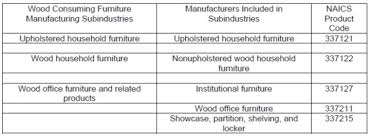
There are many kinds of drywall. You can find moisture-resistant, fire-resistant, and fiberglass-coated versions. Each type has different properties and uses. Let's take a look at some common types. Choose the one that suits your needs best. You can even pick the one that is best for your home's environment.
Different types of drywall
The different types ofdrywall you have to choose from if you're building or remodeling a home. Certain types provide better fire protection than others while others are more resistant to water damage. Every type of drywall comes with its own characteristics such as thickness and texture. Learn more about the different types and how to choose the best one.
Some types are better at resisting moisture than others. They are best used where there is high humidity. Some are more common and can be used for residential interior walls such as basements. You can choose from sheets up to four feet thick or other sizes for these types of projects.

Fire-resistant drywall
While there are many kinds of drywall to choose from, only a few are fire-resistant. Type X and type C drywall are both made of gypsum with noncombustible glass fibers, and can withstand fire and heat for up to an hour. These types are commonly used in walls, stairswells, and area-separation firewall assemblies.
The fire-resistant typeX drywall is a good choice for multi-story homes and multi-family residences. This product is a modified version of type X that has more vermiculite, glass fibers and lower shrinkage to improve panel strength.
Fiberglass-coated drywall
Fiberglass-coated drywall is a great option for homeowners looking for a smooth, mirror-like finish. Although this type of drywall will last longer than regular drywall, it is more costly. However, it can cause respiratory and skin problems during installation. These problems can be controlled by wearing a face mask, gloves and other protective gear.
Fiberglass-coated and uncoated drywall comes in many options. Some of them are better for basements or bathrooms than others. Blue board drywall is a common choice for basements. While it still has an outer layer of Gypsum, the outer paper is treated to resist moisture or mold. However, it is not waterproof. It is therefore best to use it indoors. Other types of drywall include fiberglass mesh outer layers. These types of drywall can be used in damp areas and food service areas.

Moisture-resistant drywall
Moisture-resistant type s gypsum drywall is an environmentally-friendly choice for your home. It resists moisture and mold growth. Although these drywall products can be more costly than regular ones, they can improve the health of your home and lower your chances of developing any health problems.
These panels can withstand higher humidity levels than regular drywall and are fire-resistant up to a point. These products are the best choice for rooms that have high humidity, like bathrooms. They are ideal for use behind kitchen sinks, and in utility rooms. They can also be used as a base for non absorbent finishes. They can also be used in garages and basements.
FAQ
What happens if one party doesn't take their side of the deal?
The law allows you to sue the other party for damages if you don't fulfill your agreement. Damages include the amount due plus interest, court cost, and legal fees.
What is a Service Agreement template?
A service agreement template is a document that contains all the details of a particular service agreement. A service agreement template is used to create a standard form of agreement.
Service agreements are vital because they determine the relationship between two individuals.
They help both parties understand each other's needs and expectations. They also ensure that both parties know exactly what they are getting into before signing off on the deal.
Who pays for the service?
Your SCA will indicate who is responsible in paying for the service. It may be possible to sue the court for compensation if the service provider has not been paid in full.
Statistics
- Reasonable late fees go up to 25% per year on unpaid sums. (lawdepot.com)
- Depending on the client's trustworthiness and financial stability, a deposit is usually 10 to 50% of the total contract amount. (lawdepot.com)
- (1) Except as provided in paragraphs (a)(4) and (a)(8) of this section, if the estimated amount of the contract or subcontract is $10 million or more, the contracting officer shall request clearance from the appropriate OFCCP regional office before- (acquisition.gov)
- (1) Ascertain the extent to that offers are based on the payment of overtime and shift premiums; and (2) Negotiate contract prices or estimated costs without these premiums or obtain the requirement from other sources. (acquisition.gov)
- (d) Contractor disputes related to compliance with its obligation shall be handled according to the rules, regulations, and relevant orders of the Secretary of Labor (see 41 CFR60-1.1). (acquisition.gov)
External Links
How To
What is the difference between service agreements and contracts?
A service agreement describes an agreement in which a provider offers to provide services for a client. It creates an obligation between the parties. The term "service" can be used to refer to the products, information, advice, or other services offered by a company.
A contract is an legally binding document that describes the terms and circumstances of a business relationship. If you buy a product directly from a retailer, you've entered into a contractual agreement. You have the right to make payment for the item in due time. Accepting employment is a sign of your agreement with your employer.
The service agreement does not require any documentation. It is rare to use a written service contract in practice. Verbal agreements are more common.
However, service agreements have many advantages over contracts:
-
A service contract is more flexible that a contract.
-
It allows a service company to change its mind without being penalized.
-
It allows the service to have greater control over how they deliver the service.
-
It is a clear record that demonstrates what was said.
-
It is easier to enforce against a service provider.
-
It is much cheaper to write a service contract than a standard contract.
-
It is less likely to result in litigation.
-
It is simpler to terminate a service arrangement than a contractual contract.
-
It is more simple to amend a service agreement than a standard contract.
-
To establish an ongoing relationship, you can use a service contract.
-
It is possible to share the cost of drafting a service agreement with a third party.
-
It is possible to include a clause requiring arbitration in a service agreement.
-
It is possible to add provisions regarding confidentiality, non-disclosure, proprietary rights, etc.
-
It is possible, for example, to specify the length of the contract.
-
It is possible to make a service agreement subject to a particular condition precedent.
-
It is possible to declare that the service provider will only be liable for negligence, gross negligence or fraud.
-
It is possible, however, to limit liability for consequential losses.
-
It is possible for the service supplier to enter into another contract with a different customer.
-
In certain situations, notice can be given of termination.
-
You can ask the service provider for a warranty.